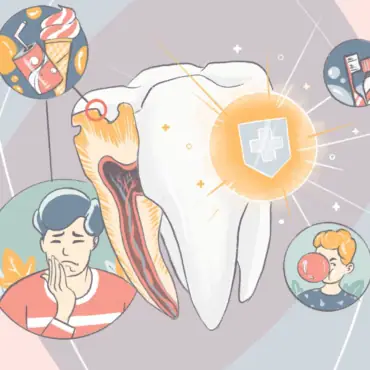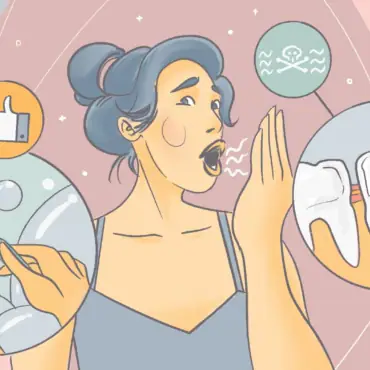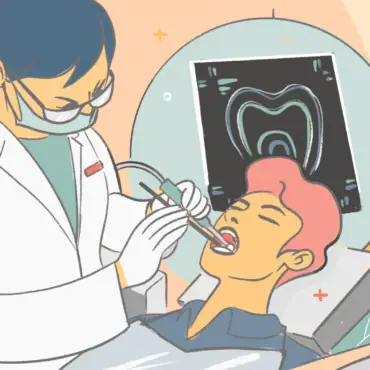JUMP TO: In-office teeth whitening / Laser teeth whitening / Whitening trays & pens / Internal teeth whitening / Whitening strips / Insurance coverage / Is professional whitening worth it? / Book an appointment
You want a great smile because it makes you look better. We’re all like that. But what a great smile does even better is how it makes you feel. Unfortunately, over time, your teeth may have become stained from contact with a variety of substances like coffee, tea, wine, tobacco, or even prescription. Sometimes cavities or trauma can cause discoloration. For others, it’s simply genetics. But how much does teeth whitening cost?
Thankfully, there are loads of options available now for whitening your teeth. Some you can do at home; others are for your dentist. Whichever method you opt for, you won’t be alone! Statistics show that 38.29 million Americans used teeth whiteners in 2019. Let’s discuss.
How much does teeth whitening cost?
The cost of teeth whitening depends on who is doing it, how, and with what. Obviously, teeth whitening in front of your bathroom mirror will cost less than in-office treatments (and probably less effective long-term).
Get $50 when you see a top-rated dentist.
Ask a dentist about teeth whitening options. Book your check up now!
Teeth whitening is either external or internal. It can be done in entire arches of your mouth or more finely focused on one tooth at a time. Whitening by dentists costs an average of $300 per row of teeth. And cost will depend on how badly stained your teeth are and how white you want to go. Another consideration is that your teeth may be stained on the outside or more deeply inside, which can be a sign of a dead tooth or root discoloration. You may consider simply whitening the outside. But if your teeth are too damaged or decayed, whitening won’t cut it. In those cases, crowns or veneers will be necessary to restore your smile.
Other things that can add to the cost of teeth whitening include sourcing good quality materials, the concentration of the solution used, and pre-assessment investigations. The total cost depends on the extent of the procedure, safety measures, and associated procedures like enamel microabrasion, topical fluoride application, or a full dental examination.
What methods of teeth whitening are available?
In-office teeth whitening
Seeing a dentist will cost your more, obviously, but the results can be dramatic. External whitening involves bleaching the teeth from the outside. This is more affordable and less difficult. It often requires getting an X-ray so the dentist can see whether you qualify for safe teeth whitening.
In-office teeth whitening procedures all follow a similar process:
First, your dentist will take note of the exact shade of your teeth as a guide and reference point. They’ll then remove any plaque on your teeth before applying the whitening agents – which usually contain hydrogen peroxide or carbamide peroxide. LED devices will then be used to accelerate the process. (The use of these also ads to the total cost.)
The process goes on for about an hour after which your dentist will rinse your teeth. Follow-up visits will likely be necessary too, because you probably won’t get to your desired shade in just one visit. Further treatments are recommended until you are satisfied with the results [3].
Average costs for in-office teeth whitening run between $650 and $1,000.
Laser teeth whitening
This one is also exclusively for your dentist. It’s also somewhat costly, but it’s a fast and effective way to remove stains.
Your dentist will start with an overall health assessment. They’ll take note of sensitive teeth, any allergies, and any pre-existing dental conditions (like over-exposed tooth roots) that may interfere with the process. And if you’re pregnant, laser whitening is not recommended.
If you’re deemed a good candidate for laser whitening, your dentist may consider pre-medication if you have previously reported tooth sensitivity. Your dentist will then start by cleaning your mouth thoroughly to ensure you get the full benefits of whitening.
Get $50 when you see a top-rated dentist.
Ask a dentist about teeth whitening options. Book your check up now!
The whitening agent will then be applied to your teeth and a laser used to kickstart the whitening process. The dentist cleans off that layer, repeats the cycle, and finally rinses your mouth. Like with all whitening methods, there will likely be some temporary sensitivity following the treatment.
What price can you expect? Anywhere between $400 and $1,500.
Whitening trays
Ok here are some home-based options.
Whitening trays and pens (sometimes with included toothpaste) can all be good choices. And kits like these may include LED lights to speed up the process.
Some of these over-the-counter options are good for hybrid approaches to teeth whitening. In these cases, your dentist can help with dosage and choosing a safe product. He or she may even make a custom tray for you, to optimize fit and effectiveness of this method.
The dentist’s solution may be stronger than over-the-counter teeth whitening products. You’ll be given your own tray and prefilled syringes of the whitening product. This is a cheaper and less time-consuming option than in-office whitening.
This method will likely cost you $100 to $400.
Internal teeth whitening
This method is another dentist-required one because it bleaches teeth from the inside out. (The discoloration in this scenario usually comes from nerve damage.) It costs more because the nerve of the affected tooth will be removed by a specialist before the procedure begins. The dentist will then inject the whitening agent directly into the substance of the tooth and close it off.
Internal whitening costs about $300 per tooth. Definitely pricier, but very effective in fixing discolored teeth.
Whitening strips
And of course over-the-counter whitening strips enable teeth whitening from the comfort of your home. Lots of us have tried this method, which works on most surface stains.
To use these, peel the strip off the plastic liner and attach the gelled side to the surface of your teeth. Ensure it’s lying flat against your teeth and avoid contact with your gums. Leave on for the recommended duration and then peel off and dispose of the strip.
Some brands recommend daily use for up to two weeks. And be sure to pay attention to your teeth sensitivity and slow down if you notice any discomfort. It doesn’t feel very nice when you over-use these. You might want to avoid hot or cold drinks just after whitening – stick to room temp.
Whitening strips cost $20 to $100 per box. Each box should be enough for one or two weeks on average.
Does dental insurance cover teeth whitening?
In a word, no. Not usually anyway. Since whitening is considered cosmetic and not medically necessary, most insurance companies do not cover costs. You may be covered for the dental exams leading up to it, but you’re on your own for the whitening. You may want to consider other ways to cut down costs. Dental discount plans are one good option.
How long does teeth whitening last?
No method of teeth whitening is permanent. At best, you can expect whitening effects to last up to six months. And you may need more than one session to reach your desired shade and could require maintenance sessions from time to time.
That said, you can cut down on staining by staying away from coffee, black tea, and cigarettes. If you do indulge in dark-colored foods or beverages, rinse your mouth with water right after – it’ll go a long way in preventing stains.
And of course, good oral hygiene is the best way to prevent future yellowing. Brush your teeth twice daily with a fluoride toothpaste and floss at least once a day to clear away plaque that can stain your teeth. You can also add an antibacterial mouthwash into your routine.
Is professional teeth whitening worth it?
In terms of safety and results, professional teeth whitening is the superior choice. More patients report a significant difference in the appearance of their teeth after in-office procedures compared to at-home whitening. This makes sense, since the concentration of hydrogen peroxide in over-the-counter whitening strips will rarely go any higher than 10%. In professional whitening, the concentration of hydrogen peroxide ranges between 35% and 45%. This means quicker results and fewer sessions.
Get $50 when you see a top-rated dentist.
Ask a dentist about teeth whitening options. Book your check up now!
Wondering where to get professional teeth whitening services near you?
Reach out to Opencare today! We take away the stress of finding a dentist. With our help, you can find a dentist near you. Afterward, you can book a dentist’s appointment and go in for a professional consultation.








